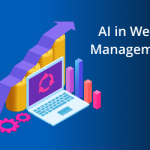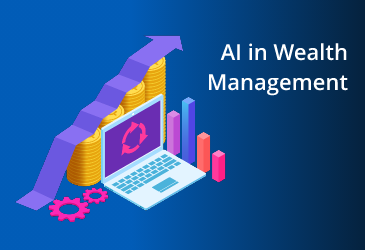As artificial intelligence continues to revolutionize the investment landscape, a critical
conversation has emerged around the ethical implications of AI and investing. In 2025,
investors are no longer just asking whether AI can improve their returns—they’re asking
whether it should, and under what conditions. This shift represents a fundamental
evolution in how we think about technology’s role in financial markets and our
responsibility as stewards of capital.
The integration of AI into investment strategies has created unprecedented
opportunities for portfolio optimization and risk management. However, with these
capabilities come complex ethical considerations that every investor must understand to
make informed decisions about their financial future.
The Ethical Landscape of AI in Finance
The ethical challenges surrounding AI and investing extend far beyond simple questions
of fairness or transparency. They touch on fundamental issues of market stability, social
responsibility, and the concentration of financial power. As AI systems become more
sophisticated and widespread, their collective behavior can influence market dynamics
in ways that were previously unimaginable.
One of the primary ethical concerns involves algorithmic bias. AI systems learn from
historical data, which may contain embedded biases that reflect past inequalities or
market inefficiencies. When these biased algorithms make investment decisions, they
can perpetuate or even amplify existing disparities. For example, an AI system trained
on historical lending data might inadvertently discriminate against certain demographic
groups or geographical regions, affecting investment flows and economic opportunities.
Market manipulation represents another significant ethical frontier. While AI can detect
and prevent traditional forms of market manipulation, it can also enable new, more
sophisticated forms of market abuse. High-frequency trading algorithms can potentially
coordinate to manipulate prices, and AI systems might exploit regulatory gaps or
behavioral patterns in ways that disadvantage less sophisticated investors.
Transparency and Explainability in AI Investment Decisions
The “black box” nature of many AI systems poses unique challenges for investors who
want to understand how their money is being managed. Traditional investment
strategies, while complex, can typically be explained in terms that investors can
understand. AI systems, particularly those using deep learning, may make decisions
based on patterns that are difficult or impossible for humans to interpret.
This lack of transparency raises important questions about accountability and trust.
When an AI system makes a poor investment decision, who is responsible? How can
investors evaluate the quality of an AI system if they cannot understand its decisionmaking
process? These questions become particularly acute when AI systems are
managing retirement funds, college savings, or other assets critical to investors’ longterm
financial security.
Leading AI investment platforms are addressing these concerns by developing more
explainable AI systems and providing investors with detailed insights into their decisionmaking
processes. However, the balance between sophistication and transparency
remains an ongoing challenge in the industry.
Environmental and Social Responsibility in AI Investing
The environmental impact of AI systems has become an increasingly important
consideration for ethically minded investors. Training and running sophisticated AI
models requires significant computational resources, which translate into substantial
energy consumption and carbon emissions. Some estimates suggest that training a
single large AI model can produce as much carbon dioxide as five cars over their entire
lifetimes.
For investors concerned about environmental sustainability, this raises important
questions about the carbon footprint of their AI-powered investment strategies. Forwardthinking
platforms are addressing these concerns by using renewable energy sources,
optimizing algorithm efficiency, and incorporating environmental considerations into
their investment decisions.
Social responsibility extends beyond environmental concerns to include questions about
the broader impact of AI and investing on society. As AI systems become more
prevalent in financial markets, they may contribute to job displacement in traditional
financial services roles. They may also influence the allocation of capital in ways that
affect economic development and social equity.
Regulatory Frameworks and Compliance
The regulatory landscape for AI in finance is evolving rapidly as governments and
regulatory bodies work to keep pace with technological advancement. In 2025, investors must navigate a complex web of regulations that vary by jurisdiction and continue to
develop as authorities gain experience with AI systems.
Key regulatory considerations include data privacy requirements, algorithmic
accountability standards, and disclosure obligations. The European Union’s AI Act, for
example, imposes strict requirements on AI systems used in financial services,
including provisions for risk assessment, human oversight, and algorithmic auditing.
Similar regulations are being developed or implemented in other major markets.
For investors, these regulatory requirements translate into important considerations
when selecting AI investment platforms. Platforms that proactively address regulatory
compliance and demonstrate commitment to ethical AI practices are likely to be more
sustainable and trustworthy partners for long-term investment strategies.
Fiduciary Responsibility in the Age of AI
The concept of fiduciary responsibility—the legal and ethical obligation to act in the best
interests of clients—takes on new complexity in the context of AI and investing.
Traditional fiduciary standards assume human decision-makers who can be held
accountable for their choices. AI systems, however, operate according to algorithms
that may make thousands of decisions per second without direct human oversight.
This raises important questions about how fiduciary responsibility applies to AI-powered
investment management. Can an AI system be held to fiduciary standards? What
obligations do human managers have when they delegate decision-making to AI
systems? How can investors ensure that AI systems are acting in their best interests
rather than optimizing for metrics that may not align with their goals?
Industry leaders are developing new frameworks for AI governance that address these
questions while maintaining the benefits of automated decision-making. These
frameworks typically include provisions for human oversight, regular algorithm auditing,
and clear accountability structures.
Addressing Bias and Promoting Fairness
One of the most significant ethical challenges in AI and investing involves addressing
bias and promoting fairness in algorithmic decision-making. AI systems can exhibit bias
in multiple ways: through biased training data, biased algorithm design, or biased
interpretation of results.
To address these challenges, leading AI investment platforms are implementing
comprehensive bias detection and mitigation strategies. These may include diverse
training datasets, regular algorithm auditing, and continuous monitoring for discriminatory outcomes. Some platforms are also incorporating fairness constraints directly into their optimization algorithms, ensuring that investment decisions promote equitable outcomes.
Investors can play a role in promoting fairness by choosing platforms that demonstrate
commitment to ethical AI practices and by asking pointed questions about bias
mitigation strategies during platform evaluation.
The Role of Human Oversight
While AI systems offer tremendous capabilities for investment analysis and decisionmaking,
most ethical frameworks emphasize the importance of maintaining meaningful
human oversight. This doesn’t mean that humans must approve every investment
decision—such an approach would negate many of the benefits of AI automation.
Instead, it means ensuring that humans retain ultimate authority over investment
strategies and can intervene when necessary.
Effective human oversight in AI investing typically includes regular review of algorithm
performance, ongoing monitoring for ethical issues, and clear escalation procedures for
problematic situations. It also involves maintaining human expertise and judgment to
complement AI capabilities rather than simply deferring to algorithmic
recommendations.
Privacy and Data Protection
AI investment systems require access to vast amounts of data to function effectively.
This data may include not only traditional financial information but also alternative data
sources such as social media activity, purchasing patterns, and other behavioral
indicators. The collection and use of this data raise important privacy concerns that
investors must consider.
Leading platforms address privacy concerns through comprehensive data protection
policies, secure data handling procedures, and transparent disclosure of data usage
practices. They also provide investors with control over their data and clear options for
limiting data collection when desired.
Building Trust Through Transparency
Trust is fundamental to successful investment relationships, and building trust in AI
systems requires a different approach than traditional investment management.
Investors need to understand not just what AI systems are doing with their money, but
how and why they are making specific decisions.
This requires platforms to invest in user education, clear communication about AI
capabilities and limitations, and transparent reporting of system performance. It also
requires ongoing dialogue between platforms and investors to ensure that AI systems
continue to meet evolving needs and expectations.
Looking Forward: The Future of Ethical AI Investing
As we move further into 2025 and beyond, the ethical landscape of AI and investing will
continue to evolve. New technologies will create new opportunities and challenges,
while regulatory frameworks will become more sophisticated and comprehensive.
Investors who stay informed about these developments and choose platforms that
prioritize ethical AI practices will be best positioned to benefit from the advantages of AI
while minimizing potential risks.
The future of ethical AI investing likely includes more sophisticated explainability tools,
stronger regulatory frameworks, and greater standardization of ethical practices across
the industry. It may also include new forms of investor protection and compensation for
AI-related errors or misconduct.
Conclusion
The intersection of AI, ethics, and investing represents one of the most important
conversations in modern finance. As AI systems become more powerful and prevalent,
the ethical considerations surrounding their use will only become more complex and
consequential. Investors who understand these issues and make informed choices
about their AI investment strategies will be better positioned to achieve their financial
goals while contributing to a more ethical and sustainable financial system.
The key is not to avoid AI altogether—the potential benefits are too significant to
ignore—but to engage thoughtfully with these technologies and choose platforms that
demonstrate genuine commitment to ethical practices. By doing so, investors can
harness the power of AI while upholding the values and principles that should guide all
financial decision-making.
Experience Ethical AI Investing with Saena
Ready to explore how AI can enhance your investment strategy while maintaining the
highest ethical standards? Saena is committed to responsible AI implementation that
puts your interests first. Our platform combines cutting-edge artificial intelligence with
transparent, ethical practices that you can trust with your financial future.
With Saena, you get:
§ Complete transparency in AI decision-making processes
§ Rigorous bias detection and fairness protocols
§ Human oversight and accountability at every level
§ Commitment to environmental and social responsibility
§ Full regulatory compliance and data protection
Don’t compromise on ethics for performance – get both!
Visit Saena.ai today to discover how ethical AI investing can work for you. Your portfolio
and your principles can thrive together.








